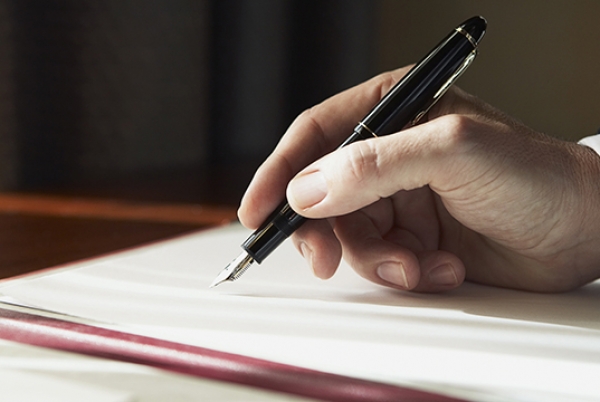Reflections on independence
Becahra Khoury’s British bornaita (hat), Riad Solh’s Turkish “tarboush” (fez) and Majid Arslan’s “ba’akour” (stick) were not encouraging symbols to the enthusiastic student eager to celebrate independence.
As days passed and the student read about those men commonly referred to, by the Civic Education book, as heroes of independence, his enthusiasm faded away. After the ‘Allies’ had settled their scores in Lebanon, the ‘French’ Emile Edde was branded a traitor, and those who had been imprisoned in the Rachaya Fortress for a few days became ‘heroes’.
As more days passed, the enthusiastic student read about the only martyr of the independence, Said Fakhereddine, a soldier who was once left out of the history book. Upon learning more about other martyrs such as those that faced the Ottomans in World War I, he wondered why the names of the true heroes were substituted with those of politicians. Instead of being an occasion for unity, independence has become a source of divisions, and raising the flag to glorify an ‘eternal’ Lebanon has served as a disguise for Christian confessionalism, while Islamic confessionalism has been hiding behind the Palestinian and Arab causes.
The enthusiastic student discovered (of course not from the ‘unified’ history book or the one on civic education), the true meaning of independence. Independence is not in the departure of an army from our land, nor in the negative attitude towards ‘the other’, and it does not exist in the display of symbols, but in our scale of values - when we lose those values or tip the scale, we lose independence.
With time, we have failed to construct a society of knowledge and productivity and have instead been transformed into single entities competing for money and power. In the midst of that, we have lost that most precious treasure: freedom. To that student, Lebanon was a beacon of light in the midst of tyrannical Arab regimes. He also believed that where productivity and creativity exist, there is freedom (and vice versa). The closer we are to those values, the brighter the light.
Once the student came to realize this, he fell in love again with his country and suddenly felt differently toward Bechara Khoury’s “bornaita”, Riad Solh’s ” tarboush”, and Majid Arslan's “ba’akour”. He had wrongly condemned those people, for the problem is not in the individuals, it is in the scale of values, he discovered.
To quote the words of Gibran, written over 70 years ago:
“Pity the nation that is full of beliefs and empty of religion
Pity the nation that eats a bread it does not harvest
Pity the nation divided into fragments, each fragment deeming itself a nation”
More of Gibran’s words dawned on the student, especially those echoed by Kennedy, that you should “ask not what your country can do for you, but what you can do for your country”. Let us produce at all levels: agriculturally, industrially, in arts and science, to become a society of knowledge, for only then will we be independent and Lebanon can be what we aspire for it to be.
Jawad Adra








Leave A Comment